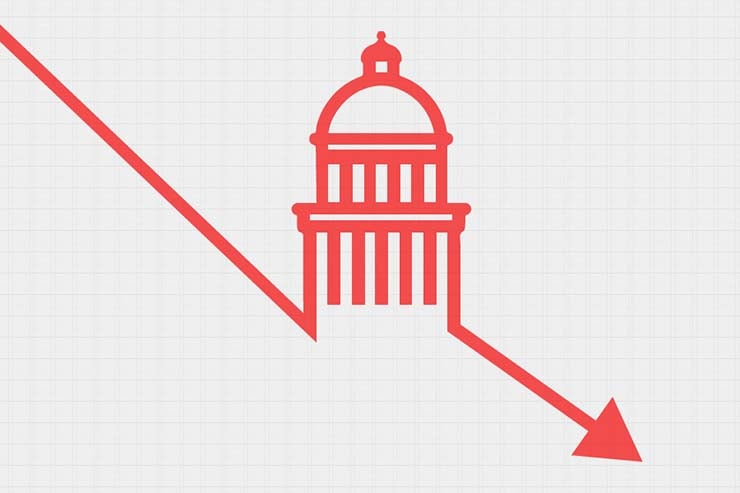Given the size of the shift in the 2024 election from Democrats to Republicans across the board and in virtually every category of voter except educated white women, the punditocracy needs to ask: Why didn’t they see it coming? She was unwilling or unable to articulate her policies. She bore the stigma of an administration that has presided over massive failures at the border, in managing the economy, and in upholding peace and winning wars. The writing was on the wall.
So why was an unpopular, incompetent candidate—one who was rejected in the 2020 primaries without a delegate to her name—still at 40 percent in the betting markets and given a serious chance at election by observers who ought to have known better?
The answer is observers didn’t want to know better.
Fortunately, for the rest of us, two concepts drawn from technical political science can help us understand this shift better: the spiral of silence and self-deceit.
The phrase “the spiral of silence” was coined by the German political scientist and Christian-Democratic pollster Elisabeth Noelle-Neumann (1916-2010). She explained that since all of us want to be accepted by others, we all—though some of us more than others—tend to tailor our opinions to those we consider dominant. We all are sensitive to the general “climate of opinion,” and we all tend to adjust expressions of our opinions—and to minimize our experience of cognitive dissonance, our opinions themselves.
How are we informed about the climate of opinion? One way is through our friends, neighbors, acquaintances, and work colleagues. But another way is through the media. But the media, with its leftist “progressive” bias and combination of class-based siloing and unprofessionalism, tends to report what its editors and reporters want people to think and not what those people actually think.
The result is what Noelle-Neumann called a “dual climate of opinion” and, in consequence, “pluralistic ignorance.” We are systematically misinformed about what other people think as we are led to believe that others we care about are more like the progressives the media wants them to be than they are like us. We are made to feel insecure and alone in our opinions. We are thus prone to attempt to adjust our expressions of opinion to a media-created false consensus, and then to behave and eventually believe as if that consensus were genuine. That is the purpose this media exercise . In this way they believe they can will a new consensus into existence.
But sometimes, especially when progressive consensus opinions produce disaster, the media-distorted mirror can crack. What cracks first is our willingness to talk about what others think as we find it increasingly unappealing, and only subsequently our willingness to express our true opinions.
In decades of polling research, Noelle-Neumann demonstrated that if you want to use polls to predict election outcomes, the right question to ask is not “Who do you support?” but “Who do you think is going to win?” The question “Who do you support?” activates our fear of the consequences of dissenting. The question “Who do you think is going to win?” asks us to act as detached social observers, making us more prone to answer as if we were not seeking favor.
Now ask yourself, which well-funded and well-run pollster asked that question in 2024? In 2016 the USC Dornsife poll asked that question exclusively and it was pretty much the only one to get the election right. In 2020 the USC Dornsife poll added to that question the toxic question “Who would you vote for if the election is held today?” in order “to be similar to most other pollsters.”
Here we see the “spiral of silence” triumphing over scientific and personal integrity, as USC Dornsife chose to add an inferior question to one they should have known from Noelle-Neumann’s decades of acclaimed work and their own accomplishment in 2016, would produce an accurate result. In 2024 USC Dornsife did not poll at all.
So, dear colleagues, if you want to do better in 2026, 2028 and beyond go back to the proven methods of Elisabeth Noelle-Neumann and USC Dornsife poll, vintage 2016. Poll the same people repeatedly so you can see change coming across demographic groups. Avoid the question “Who are you voting for?” and stress the question “Who do you think is going to win?”
There is no point in trying to predict elections while choosing inferior tools for doing so. As Jimmy Carter said in his 1975 campaign autobiography: “Why not the best?”

Leave a Reply